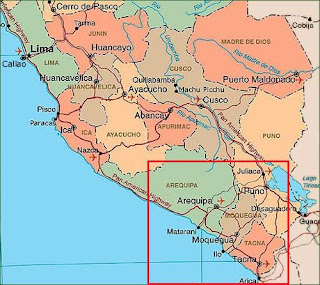latin america
Fidel on Trujillo; honesty in journalism; and the release of Ingrid Betancourt
The true story and the challenge of the Cuban journalists
* * *
Excerpt: ``Out of a basically humanist sentiment, we rejoiced at the news that Ingrid Betancourt, three US citizens and other captives had been released. The civilians should have never been kidnapped, nor should they have been kept prisoners in the conditions of the jungle. These were objectively cruel actions. No revolutionary purpose could justify it. The time will come when the subjective factors should be analysed in depth.''
* * *
By Fidel Castro Ruz
July 3, 2008 -- Seven days ago I wrote about one of the great men in history: Salvador Allende, a man the world remembered with deep emotion and respect on his first centennial. However, no one quivered or even recalled the date of October 24, 1891, when the Dominica Republic's despot Rafael Leonidas Trujillo was born, eighteen years before our admired Chilean brother.
`Is Cuba done with equality?' NOT!
By Fred Feldman
June 28, 2008 -- I am responding to ``Of Pay and Productivity: Is Cuba Done With Equality?'', an article by Moshe Adler, director of Public Interest Economics, which appeared in the June 20 Counterpunch (a radical monthly print and daily webzine based in the US.) The article deals with the latest modifications of the country's wage structure made public June 11.
I think it would be useful if I presented some general considerations, despite what I admit is a broad but rather too shallow knowledge of the Cuban Revolution. I have never been in the country, for example. My knowledge of Spanish has grown quite a bit in the recent period, so that I can plough through shorter Spanish-language articles with a dictionary in hand, but it is still in the poquito range.
Characteristics of the experiences underway in Venezuela, Ecuador and Bolivia
June 27, 2008 -- In Latin America, if we exclude Cuba, we can point to three general categories of governments. First, the governments of the right, the allies of Washington, that play an active role in the region and occupy a strategic position: these are the governments of Álvaro Uribe in Colombia, Alan García in Peru and Felipe Calderón in México.
Second, we find supposed “left” governments that implement a neoliberal policy and support the national or regional bourgeoisies in their projects: Brazil, Uruguay, Chile, Nicaragua and the government of Cristina Fernandez Kirchner, from Argentina’s Peronists. They are governments that implement a neoliberal policy that favour grand capital, covered up with some social assistance measures. In effect, they make it a bit easier to swallow the neoliberal pill by applying social programs. For example, in Brazil poor families receive a bit of help from the government, which assures them popular support in the poorest region of the country.
Taking stock of the Bolivarian Revolution: Changing Venezuela by Taking Power
Changing Venezuela by Taking Power, by Gregory Wilpert (Verso, 2007)
June 26, 2008 -- Gregory Wilpert has pulled off a triumph on two fronts with his new book on the Bolivarian Revolution, Changing Venezuela by Taking Power. Most obviously, Wilpert's book — in both its scope and (sometimes almost maddening) objectivity — is the most detailed and credible analysis yet published of the Venezuelan revolution, which itself represents, arguably, the single most significant challenge today to the hegemony of global capitalism.
XIV Sao Paulo Forum: Left parties debate the current historic conjuncture
By Inés Hayes, with reports from Montevideo by Cristina Camusso and Julio Louis.
Peru: Miners, Moqueguanos win victory following violent government attacks
By Carlos Quiroz, peruanista.blogspot.com
June 19, 2008 (updated June 26) -- The videos you are about to see are a bit shocking. For 18 months the people of the Moquegua region (southeastern Peru) and the mining workers from that region have been seeking for peaceful negotiations with the Peruvian government in Lima.
Photo essay: Mexican indigenous front agitates for rights of migrants in the US
Text and photos by David Bacon
SANTIAGO DE JUXTLAHUACA, OAXACA, MEXICO
MAY 31, 2008 -- The assembly of the Indigenous Front of Binational Organisations in the Mixteca region of Oaxaca, one of the poorest areas in Mexico. A large percentage of the indigenous population of Oaxaca and other states has left to work in northern Mexico and in the United States. The FIOB is a political organisation of indigenous communities and migrants, with chapters in Mexico and the US. It advocates for the rights of migrants, and for the right not to migrate -- for economic development which would enable people to stay home.
Bolivia's vice-president on the course of revolution
By Álvaro García Linera, vice-president of Bolivia
Translation, notes and introduction by Richard Fidler
Nicaragua: Anti-FSLN opposition seeks unity to topple Ortega government
By Felipe Stuart Cournoyer
Che Guevara's final verdict on the Soviet economy
By John Riddell

